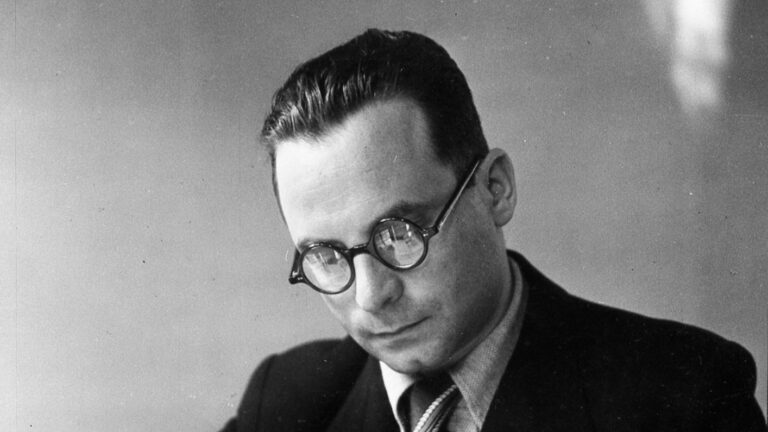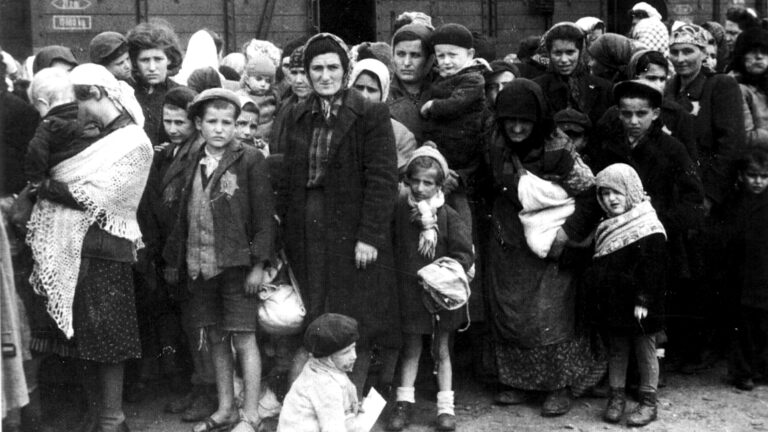Every year—since 1964—Hungarians celebrate National Poetry Day on 11 April, the birthday of the notable poet Attila József. He was born into a working-class family in Budapest, in 1905. He made his literary debut as a young teenager in 1922 when his first collection of poems was published. He continued to publish throughout his short life; however, he became truly famous only after his early, tragic death. He first attempted to commit suicide at the age of nine; was hospitalized several times during his life; went through a psychoanalysis to help to deal with his suicidal nature, but despite all attempts, he succeeded in ending his own life in Balatonszárszó on 3 December 1937. He was only 32.
Due to his working-class background, he was portrayed as one of the most cherished ‘proletariat’ poets of Hungary during the state-socialist period. He did possess an interest in Marxist belief, he joined the Hungarian Communist Party in 1930, but ultimately, he was expelled from it for his ‘independent mindedness’. With the collapse of the regime, his poetry was re-evaluated; having shaken off the compelled ‘proletariat poet’ interpretation of his work, his fame and cult increased; now he is ever more popular. To commemorate one of his most famous poem ‘At the Danube’ his statue was erected on the bank of the Danube near the Parliament.
With the collapse of the regime, his poetry was re-evaluated; having shaken off the compelled ‘proletariat poet’ interpretation of his work
His most famous contribution to Hungarian poetry revolves around conceptualizing the self-identification of the lyrical subject. He introduced the lyrical ‘I’ into Hungarian poetry as the individual who is open to the society, and who is determined by the extent to which he can fill in the role in society which he voluntarily picked up. He usually refers to biographical elements of his life in his poems to conceptualize the lyrical ‘I’; it is observable in famous poem ‘Mother’ as well, which synthetises the past and present lyrical ‘I’:
Mama
Már egy hete csak a mamára
gondolok mindíg, meg-megállva.
Nyikorgó kosárral ölében,
ment a padlásra, ment serényen.
Én még őszinte ember voltam,
ordítottam, toporzékoltam.
Hagyja a dagadt ruhát másra.
Engem vigyen föl a padlásra.
Csak ment és teregetett némán,
nem szidott, nem is nézett énrám
s a ruhák fényesen, suhogva,
keringtek, szálltak a magosba.
Nem nyafognék, de most már késő,
most látom, milyen óriás ő –
szürke haja lebben az égen,
kékítőt old az ég vizében.
Mother
For a week now, again and again,
Thoughts of my mother have racked my brain.
Gripping a basket of washing fast,
On, and up to the attic she passed.
And I was frank and released my feeling
In stamps and yells to bring down the ceiling.
Let someone else have the bulging jackets,
Let her take me with her up to the attic.
She just, giving me no look or thrashing,
Went on, and in silence spread out the washing,
And the kneaded clothes, rustling brightly,
Were twisting and billowing up lightly.
I should not have cried but it’s too late for this.
Now I can see what a giant she is.
Across the sky her grey hair flickers through;
In the sky’s waters she is dissolving blue.
Translation by Vernon Watkins[1]
His writings from the period are the most powerful Hungarian language anti-fascist writings
While the Hungarian Poetry Day is associated mostly with Attila József, another Hungarian literary genius, Sándor Márai also happened to be born on 11 April. He was born in 1900 in Kassa (Košice, Slovakia) and has received his higher education in Berlin. In the 1930s the Hungarian newspaper he worked for sent him back to Germany to report on Nazism. His writings from the period are the most powerful Hungarian language anti-fascist writings. He was forced into exile once the communists took over Hungary in the late 1940s. He fled to the United States, where—after the death of his wife and son—he lived in poverty. He committed suicide at the age of 88 in San Diego.
His most famous books revolve around the responsibility of the citizen (polgár) and portrays the devastation of mob mentality and violence. Independence and truthfulness were strong values in his eye – one of the main motives of his Diaries is that the artist and poet under no circumstances can betray himself. Albeit he is better known as a writer and not as a poet, two of his poets, the ’Funeral Oration’ and the ‘Angel from Heaven’ are both famous and popular. The ‘Angel from Heaven’ was written mourning the defeat of the 1956 Revolution as the Soviet troops came into Budapest sweeping away resistance:
Mennyből az angyal
…És a világ beszél csodáról,
Papok papolnak bátorságról.
Az államférfi parentálja,
Megáldja a szentséges pápa.
És minden rendű népek, rendek
Kérdik, hogy ez mi végre kellett.
Mért nem pusztult ki, ahogy kérték?
Mért nem várta csendben a végét?
Mért, hogy meghasadt az égbolt,
Mert egy nép azt mondta: “Elég volt.”
Nem érti ezt az a sok ember,
Mi áradt itt meg, mint a tenger?
Miért remegtek világrendek?
Egy nép kiáltott. Aztán csend lett.
De most sokan kérdik, mi történt?
Ki tett itt csontból, húsból törvényt?
És kérdik, egyre többen kérdik,
Hebegve, mert végképp nem értik –
Ők, akik örökségbe kapták -:
Ilyen nagy dolog a Szabadság?…
Angel from heaven
…The world talks wonder, to that they’re glued,
Priests drone of gumption and fortitude.
Statesmen produce farewell addresses,
His Holiness then duly blesses.
All kinds of people, all ranks – a sea -,
Question why all of this had to be.
Not perished as asked – can’t comprehend.
Why not in silence await the end?
Why had the skies turned from fair to rough?
Because a people had cried “Enough!”.
Many can’t grasp it, though they had tried,
What rose up here like an ocean tide?
Why was world order shaking and strained?
A nation cried out. Then silence reigned.
Many are asking: what was the cause?
Who made from bones and the flesh the laws?
More and more ask it, there seems no end,
Haltingly, for they can’t comprehend –
Those, for whom Freedom bequest had brought,
Ask it: is Freedom so great a thought?…
Translation by Kery, Leslie A.[2]
[1] Attila József, ‘Mama’, Babelmatrix, (1934), https://www.babelmatrix.org/works/hu/J%C3%B3zsef_Attila-1905/Mama/en/1902-Mother, accessed 3 April 2022.
[2] Sándor Márai, ’Mennyből az angyal’, Magyarulbabelben.net, (1956), https://www.magyarulbabelben.net/works/hu/M%C3%A1rai_S%C3%A1ndor-1900/Mennyb%C5%91l_az_angyal/en/69317-Angel_from_heaven?interfaceLang=en, accessed 3 April 2022.







